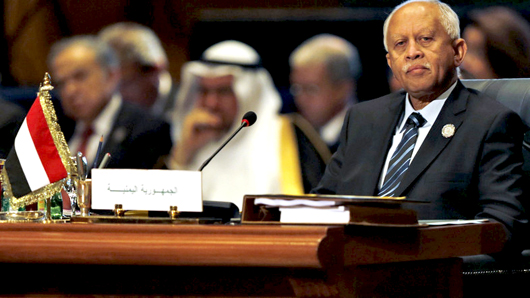Cairo, Apr 1: Yemeni Foreign Minister Riad Yassine has called for an Arab ground intervention in the country “as soon as possible.”
Asked by an interviewer on Al-Arabiya Al-Hadath whether he sought an Arab ground intervention, Yassine responded: “Yes, we are asking for that, and as soon as possible, in order to save our infrastructure and save Yemenis under siege in many cities.”

Saudi officials have stressed that the current operation against Houthis is aimed at restoring the legitimate government in Yemen.
Prince Mohammed bin Nawaf, Saudi ambassador to the UK, said Saudi Arabia will negate Iran’s policy and influence in the Arab world.
“We will not stop until the legitimate government is back,” he said in a media interview.
He added: “We support the people of Yemen, regardless of their sect.”
The envoy also said: “Iran is behaving in a manner that does not help the stability of the region.”
The UN is backing embattled President Abed Rabbo Mansour Hadi as Yemen’s legitimate leader.
A spokesman in New York said the UN relocated its peace envoy for Yemen to Jordan and pulled its last 13 foreign employees from the country. Envoy Jamal Benomar left Yemen along with some 200 UN staff.
The international staff will go back to Yemen “as soon as circumstances permit,” said UN spokesman Farhan Haq.
Haq said Benomar is working on reviving peace talks and downplayed reports that the envoy had lost support from Gulf governments.





Comments
Add new comment